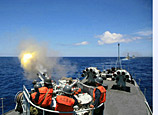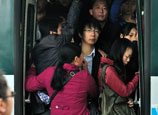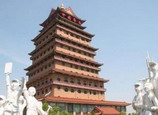
Both countries have a number of exchange and cooperation channels to discuss specific issues, Tao said, adding that the two leaders are more likely to focus on larger, long-term issues.
Chinese Ambassador to the U.S. Cui Tiankai said at a recent symposium held in Washington that the meeting "may not have a long list of what we call deliverables, but it will allow our cooperation to deliver much more in the future."
"The building of mutual trust is quite important and the further clarification of strategic positioning in bilateral relations can generate ideas for solving specific issues," Jin said.
Former U.S. National Security Advisor Zbigniew Brzezinski said the summit is "very timely" and "very much needed."
Shen Jiru, a research fellow from the CASS, said the summit will help build a new type of relationship between both sides, a topic that was mentioned in a report delivered at the 18th National Congress of the Communist Party of China in November.
"In such an eased atmosphere, the two leaders can better deepen mutual understanding and manage differences," Shen added.

















 Couple say 'I do' after 35-year wait
Couple say 'I do' after 35-year wait


![]()
